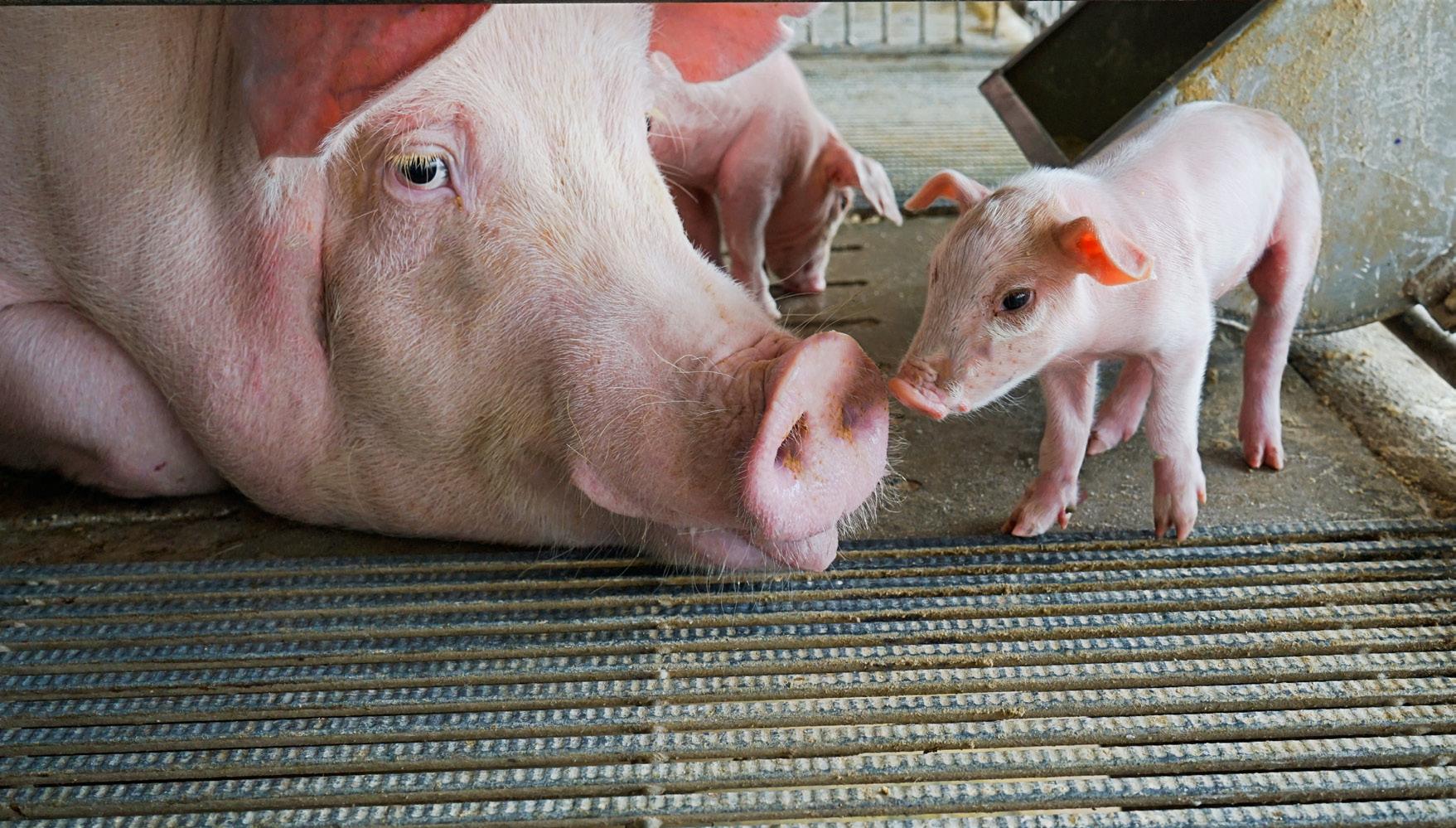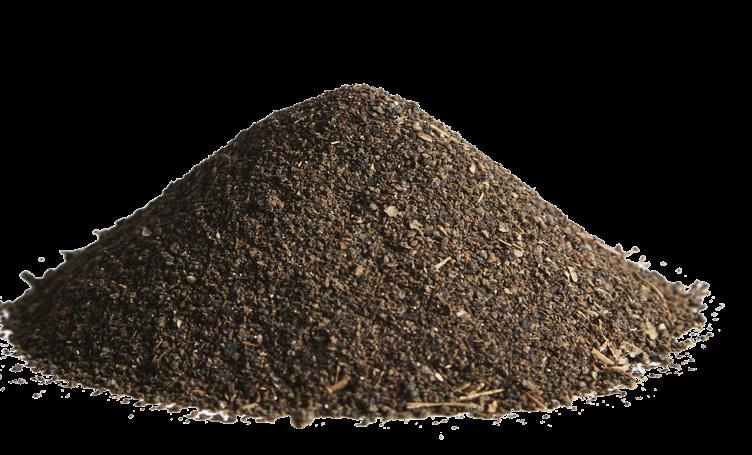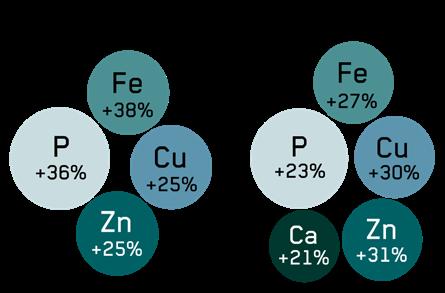
EP199 A FERMENTED RAPESEED & SEAWEED PROTEIN




EP199 is a protein-rich and fibrous, complementary feed, contributing to improved health and productivity for your sows and pigs.
A healthy sow equals welfare, but also improved productivity. Sows fed EP199 utilize the feed better, resulting in higher milk production and more weaned piglets with the same amount or less sow feed. Productivity results show that feeding EP199 increases revenue by 43 EUR per year sow on average (Table 1).
A healthy gut is characterized by a diverse gut microbiome. EP199 increases diversity in the gut microbiome by 9 per cent (Table 6). A diverse gut microbiome leaves less space for pathogenic bacteria, resulting in an overall reduced bacterial pressure on the farm (Tables 2 and 3).
When rapeseed meal and seaweed are fermented with lactic acid bacteria, bitter substances are removed, while releasing proteins, minerals, vitamins, and energy. This means that pigs can utilize the feed better. When feeding fermented rapeseed meal, the levels of phosphorus, zinc, copper, and iron in the sow’s and piglets’ blood increase by up to 38 percent (Table 4).
The sow transfers important antibodies to the piglets through the colostrum to protect them against infection. EP199 increases the number of antibodies in the colostrum and thus the
 EP199 consists of non-GMO rapeseed meal and seaweed fermented with lactic acid bacteria. EP199 contains five percent lactic acid.
EP199 consists of non-GMO rapeseed meal and seaweed fermented with lactic acid bacteria. EP199 contains five percent lactic acid.
Copenhagen University and European Protein have conducted an on-farm trial where 31,880 sows were fed EP199. After five months of feeding, the production results showed that EP199 had increased the number of weaned pigs per year sow, while reducing the protein inclusion and sow feed by 5 and 2 per cent respectively (Table 1).
A successful start requires a gradual introduction of EP199 into the feed. Begin by feeding gilts and pregnant sows. When they enter the farrowing section, include
PRODUCTION RESULTS:
The average production results improved by 43 EUR per year sow (n=31,880).
Table 1.

Calculation based on SvineRådgivningens margin-check.
MINERALS:
Increase in minerals in the blood of sows and piglets of up to 38% after feeding fermented rapeseed meal to the sows (n=12).
Table 4.

EP199 in the lactation feed. EP199 can also be fed to piglets and weaners. Download the datasheet for EP199 on the website or by scanning the QR code on your phone to learn more.
Scan the QR-code using your phone
europeanprotein.com/produkter/ep-199-en/
CAMPYLOBACTER COLI:
Average occurrence of C. coli reduced by 52% (n=1,006).
Table 2.

COLOSTRUM QUALITY:
Increase in the number of antibodies (IgG) in colostrum of 12% in average (n=50).
Table 5.

CLOSTRIDIUM PERFRINGENS:
Average occurrence of C. perfringens reduced by 65% (n=1,006).
Table 3.

GUT MICROBIOME DIVERSITY:
Increase in gut microbiome diversity for sows with below average diversity (n=165).
Table 6.


European Protein is an innovative producer of fermented proteins tailored to enhance the health and productivity of pigs, poultry and aquaculture.
Founded in 2011, this family-owned company now delivers high-quality complementary proteins to farmers and feed producers worldwide through its three production facilities in Denmark, Ukraine and the US.
At European Protein, we aspire to provide tomorrow’s solutions today. That’s why we invest in cutting-edge research to develop alternative protein solutions that contribute to our shared goal of promoting sustainability, efficiency and animal welfare.
For more information go to europeanprotein.com
European Protein A/S
Address: Vorbassevej 12, 6622 Bække, Denmark
Phone: +45 75 38 80 40
E-mail: info@europeanprotein.com
VAT No.: DK33643675
We make reservations for any mistypes, omissions or changes.